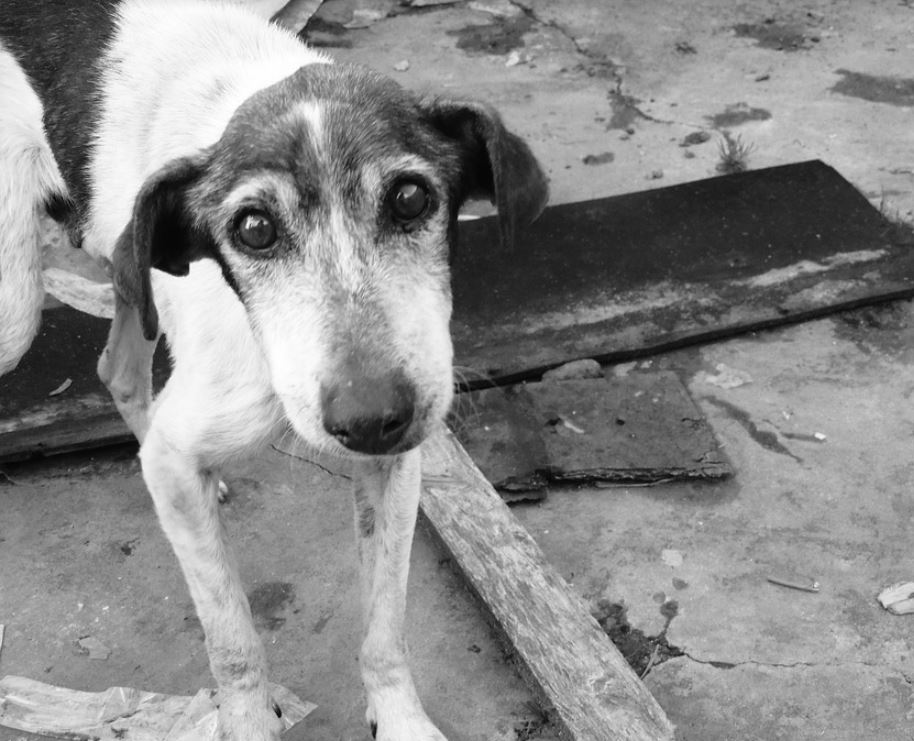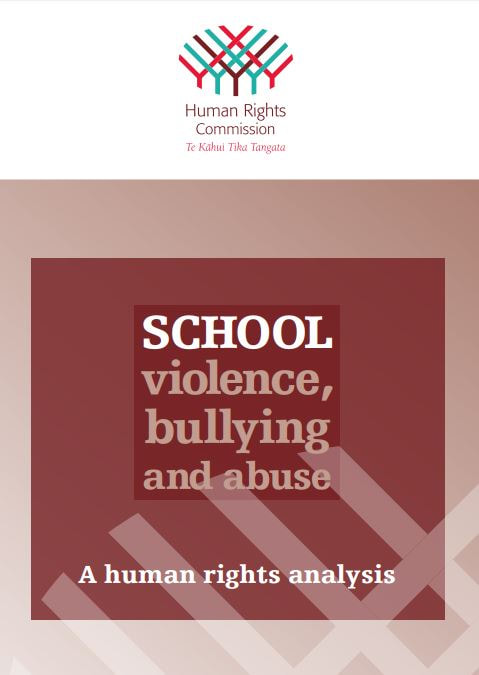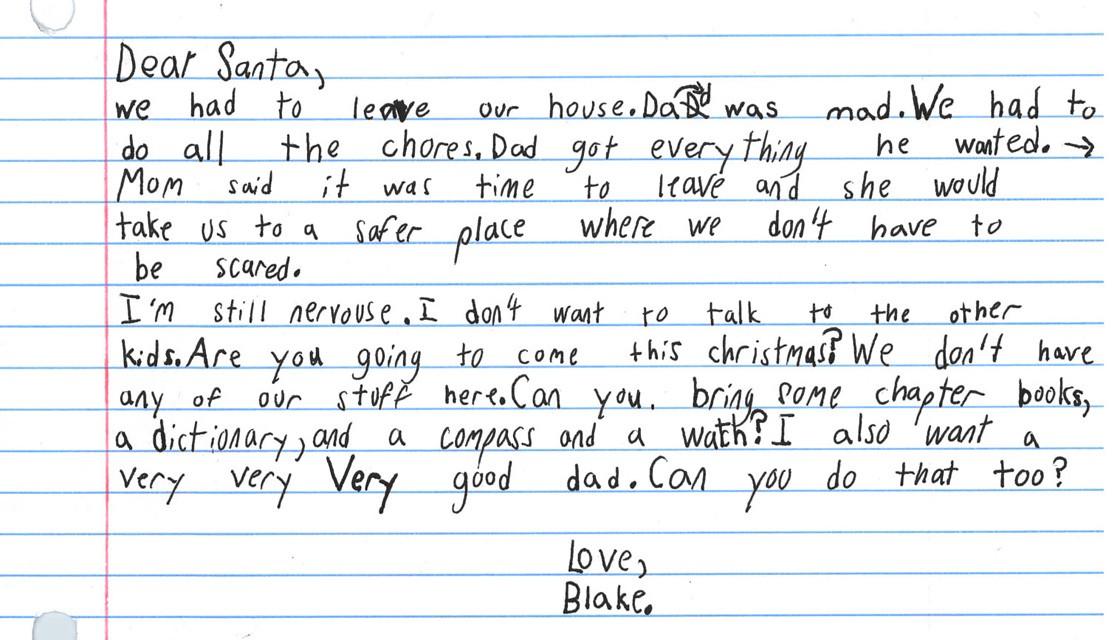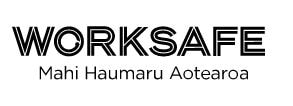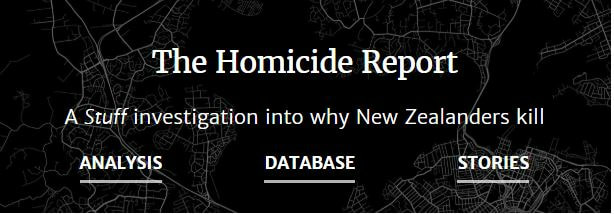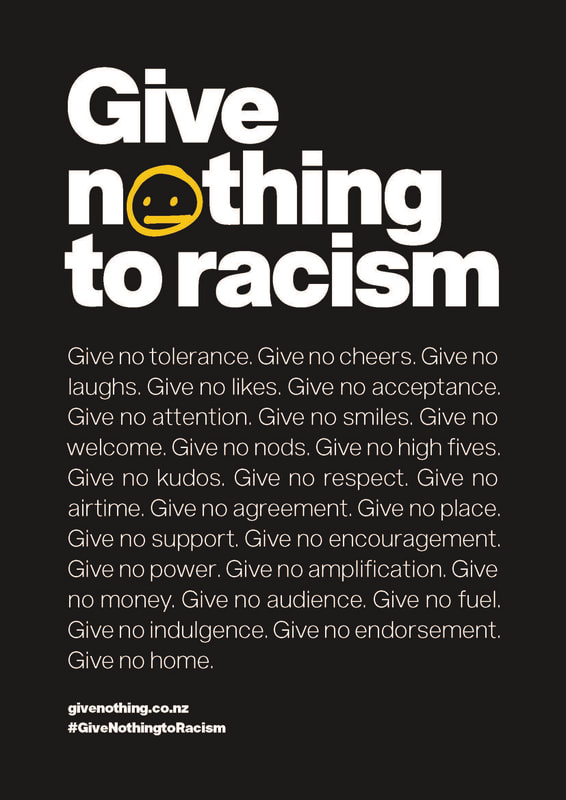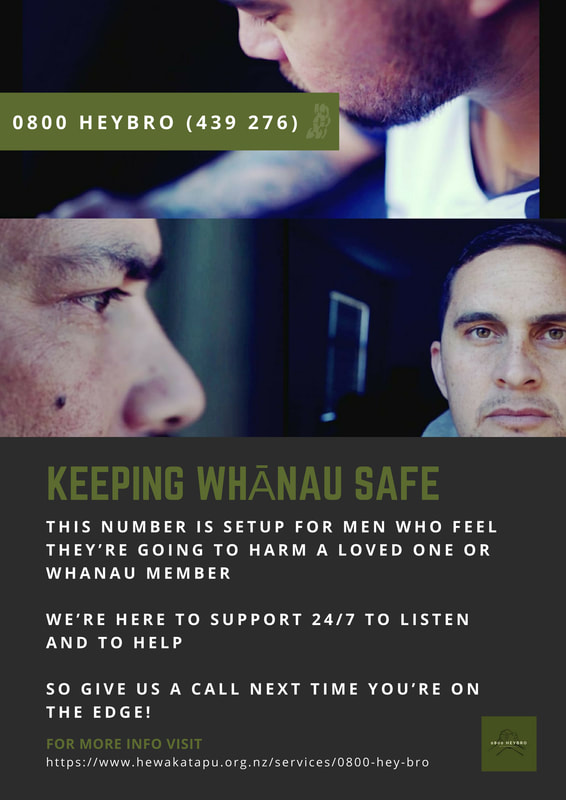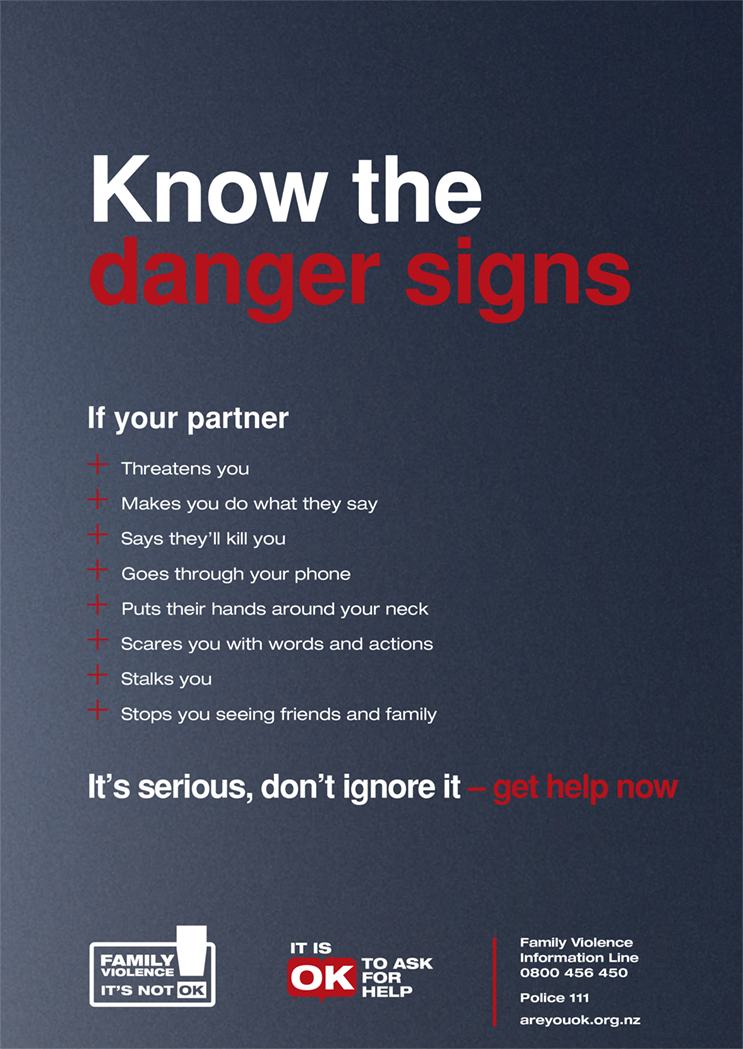|
More Helpful Articles, Tools & Links for Specific Groups can be located under Resources.
News is now organised under the headings in red for easy reference. USE these QUICK LINKS to take you to each section. Clicking the UP ARROW ICON on the right will bring you back to the top of the page. |
|
The shadow family violence pandemic - and the link to animal abuse
By Bianka Atlas - Read Full Story HERE Evidence shows domestic violence increases during and after economic crises and pandemics. There is increasing anecdotal evidence that while government-imposed lockdowns are helping to contain Covid-19, a "shadow pandemic" is proliferating. Animals do not feature in recent reports of escalating domestic violence worldwide, despite frequently being victims of violence themselves. Companion animals provide vital emotional support and may be the only source of trusted companionship and love in an abusive relationship. With half the world's population currently under some form of lockdown, Covid-19 presents additional risks to already-vulnerable humans and animals. Physical distancing measures increase social isolation and victims may struggle to access support or get respite from violence outside of the home. Lockdowns provide unique ways for abusers to exert control over victims, including withholding medical assistance or financial resources, and restricting access to food or essential sanitary items. There are even reports of abusers withholding soap or showers, and forbidding handwashing. Statistics released by the New Zealand police showed a 20 percent spike in domestic violence cases on the first Sunday after the country entered level 4 lockdown. Women's Refuge has reported increased demand in more than 60 percent of its shelters. Services for men who fear they might commit abuse have also received increased calls during the lockdown. 'The Link' - pets in the context of domestic violence The link between domestic violence and animal abuse is well established. An Australian study found 53 percent of women entering a shelter reported their pets had also been harmed. In Canada, a study revealed animal maltreatment was present in as many as 89 percent of domestic violence cases. Research indicates there is an increased risk of severe or fatal injury where domestic violence and animal abuse co-occur in a household. Abusers use animals as a tool of abuse. Acts of violence towards animals are commonly inflicted in the presence of human victims to control, punish, or intimidate. Many women delay or refuse to leave an abusive relationship due to fears for the safety of animals left with the abuser and because most shelters cannot accommodate animals. A New Zealand survey of women whose pets were abused as part of domestic violence revealed that 53 percent delayed leaving a violent relationship out of fear for their pet's safety and 73 percent would have found it easier to leave if there was a shelter offering temporary accommodation for their pets. Family violence prevention strategy gets $114.5m in Budget
Source: RNZ - READ Full story HERE The government's family and sexual violence elimination strategy will be bolstered by $114.5 million in this year's Budget. The funding, the first to be budgeted since the strategy was announced, will be split across five areas:
"We have a massive problem ... it impacts on every part of a person and their family's lives but it also impacts far too often on their members of their families after generations," Davidson said. "The evidence shows us that to eliminate violence, government must enable primary prevention that changes social norms and behaviours, fund responses that support people to get to safety and ensure the accountability of those who have used violence, and the accountability of our systems." Source: RNZ - READ Full story HERE What is known about effective recovery services for men who have been sexually abused? An evidence review - see HERE
How can men talk about sexual violence?
November 2019 - By Dr Jess Berentson-Shaw - Full story HERE *Dr Jess Berentson-Shaw is co-director of the policy and messaging collaborative The Workshop. We need men's voices in public conversations about sexual assault and consent. We want our children, our coworkers, our friends, who are women, to find enjoyment and kindness in their relationships - whether its a short term hook up or a long term partnership. In the wake of the trial of the man who killed Grace Millane, it is apparent that this is far from the norm in New Zealand. The trial revealed that too many people do not understand what being in a respectful respecting relationship looks like, that this lack of understanding goes unchecked in our communities to the extent that men are harming and killing women, and that people in the justice system can either ignore the harm or comfortably frame women as being at fault. The clearest voices of disquiet are women's. The harm is ongoing and women are angry. Many men see and hear that anger, and care. I asked some of these men what were they saying about the issues on social media, and in their everyday conversations. There were many thoughtful responses. What the responses revealed is many men feel deeply that it is not right when women are blamed for contributing to their own murder. It is not right that sexual assault still gets minimised and ignored. Something needs to change. Many said they felt it was not their story to tell. They wanted to make space for women to be heard. Some were scared of saying the wrong thing. And social media is a place where the impact of saying the 'wrong thing' or even just the hard thing can be brutal. However, there is something important that should give men who care confidence to speak: men listen to other men. Four Strangulation Charges Laid Each Day a Year after it was made an Official Offence
It's been a year since new family violence offences were brought in and it's been revealed more than four charges of strangulation are being laid a day. Within the first 11 days there were 30 strangulation charges. That jumped to 252 just two months later and in the first year over 1600. The staggering number has shocked the government. “I feel a little sick in my stomach to be honest, it's telling me there are hundreds and thousands of women in our country who are in danger,” says Jan Logie, Under-Secretary for Domestic Violence Issues. Strangulation is often a precursor to being killed and new statistics show just how frequent it is. Many of the cases are still making their way through the courts but 47 have resulted in convictions -the maximum penalty, seven years imprisonment. And with more people coming forward needing help, the Government is signalling more money could be available to support groups. Source: 1 News - see full story HERE 'Shocking' Rate of Strangulation by Young Men could be Linked to Violent Pornography
Brittany Keogh - 11:49, Oct 05 2019
The Chief Censor first raised concerns about the possibility of young people becoming desensitised to sexual violence in 2017, when a report by the Office of Film and Literature Classification revealed teenagers were being bombarded with "disturbing" content. A survey of 2000 teenagers published by the Office of Film and Literature Classification found about 70 per cent of those who'd viewed porn described what they'd seen as violent, aggressive or involving non-consensual sex acts. Read the full story on STUFF Survey prompts call to add stalking to Harrassment Act
15 October 2019 - Tracy Neal, Nelson Reporter [email protected] Frightening stories from women who have suffered stalking and abuse from their partners have prompted calls to review the Harassment Act. New Zealand Women's Refuge surveyed 700 women who had experienced intimate partner stalking and found it was part of a wider pattern of violence. The head of Women's Refuge, Ang Jury, says intimate partner stalking is harmful because it was often a precursor to worse. The result of the survey, found 60 percent were stalked by their partner after they had broken up, but 70 percent experienced the behaviour while in the relationship. Dr Jury said intimate partner stalking was harmful because it was often a precursor to worse, and it was often really frightening. "We're looking at things like:
Dr Jury said part of the problem was that complainants were not being taken seriously enough, and it was time people were better protected by the law. She would like to see the Harassment Act reviewed to include stalking, which she said "shrinks people's lives". Read the full story on RadioNZ Getting tough: How New Zealand could stop domestic violence
From RNZ Insight, 20 September 2019, Kim Griggs, RNZ Deputy Editor. Every day five people are charged with strangling someone they supposedly love. Strangulation is such a strong precursor to someone eventually dying in a domestic violence incident, it was recently made a separate offence. As new laws and government initiatives are being put in place, Kim Griggs investigates whether the changes can call time on violence in New Zealand homes. Read Full Story HERE The SPCA prevents cruelty to animals in partnership with families and communities.
International research findings indicate that animal cruelty is present in up to 76% of family violence incidents, and that animal cruelty is identified in 80% of child abuse investigations, it is highly probable that New Zealand statistics mirror the international findings. SPCA investigates approximately 46,000 animal welfare complaints annually.
A perpetrator’s threat to harm, kill, or torture a family pet is a coercive strategy used to attain and maintain control of family members. In Aotearoa, animal cruelty is an established form of family violence and is recognised as psychological abuse in the New Zealand Family Violence Act 2018. The Oranga Tamariki, Ministry for Children Tuituia Assessment Framework identifies parental animal cruelty as an indicator of abuse and child animal cruelty as a marker for significant behavioural difficulties or developmental delays. An increasing body of international research suggests that children who witness animal cruelty and experience violence in the home experience enduring and severe trauma symptoms. These children are three times more likely to perpetrate animal cruelty and five times more likely to continue the cycle of interpersonal violence.
A neglected and abused animal tethered in the backyard is often easier to spot than the abuse occurring behind closed doors. Children and other family members more readily disclose the concerns they have for the welfare of their animals, before they share the fears they have for their own safety.
Source: SPCA - Read the Full Article HERE The SPCA Targeted Intervention Portal is divided into six areas:
Bullying 'intolerably high' and beyond schools' direct control - ERO
Bullying in schools is intolerably high and most children say the strategies they are taught for dealing with bullies do not work, an Education Review Office (ERO) report says. The report - which surveyed 10,940 in 136 schools at the beginning of last year - said nearly half of primary school children and a third of teenagers reported being bullied in the past month when they responded last year. The report found boys were more likely to be bullied than girls but gender-diverse children suffered most, with 58 percent saying they had been bullied at school. Bullying rates were also high for Māori students (42 percent) and Pākehā students (40 percent). The most common forms of bullying:
Students said they had learned to report incidents to teachers or other adults, walk away from or ignore the bullying, or non-violently confront the bully either on their own or others' behalf. However, most students who had used bullying strategies said they did not work. The report said the root of the problem lay beyond the school gate, noting that New Zealand also had poor figures for family and sexual violence and for workplace bullying. The report said students wanted teachers to take allegations of bullying seriously, get both sides of the story and stop any further bullying from happening. Many students took a compassionate approach, and expressed the idea that teachers should check on the bully's wellbeing, recognising there could be underlying causes of the behaviour. Full Story HERE on RNZ |
Limiting Our Livelihoods: The Cumulative Impact of Sexual Harassment on Women’s Careers
A new research report from the American Association of University Women (AAUW) finds that workplace sexual harassment can take a toll on women’s physical and mental health, limit their job choices, reduce prospects for career development and even force them out of the workforce. These negative effects compound over time, reducing women’s lifetime earnings and contributing to both the gender and retirement wage gaps, the report concludes. The report is based on an AAUW analysis of Equal Employment Opportunity Commission (EEOC) data, a review of academic studies on sexual harassment and an exclusive nationwide survey of AAUW members and their networks. Limiting Our Livelihoods documents how women of all ages experience workplace sexual harassment. See full article and report HERE White Fragility: Why It’s So Hard for White People to Talk About Racism
In this free webinar, join renowned writer, trainer and speaker Dr Robin DiAngelo to better understand how you can engage and partner more effectively in cross-cultural dialogue, anti-racist action and change. This is a great opportunity for those who would like to improve their intercultural communication and understand unconscious cultural bias.
Dr Robin DiAngelo’s area of research is in Whiteness Studies and Critical Discourse Analysis and she has a PhD in multicultural education. DiAngelo has been a consultant and trainer for over 20 years on issues of racial and social justice. After coining the term “White Fragility” in an article, to describe the defensiveness that even the most well-meaning white people exhibit when their ideas about race and racism are challenged, she went on to write a book of the same name with a subheading ‘Why It’s So Hard for White People to Talk About Race’. Her book was released in June of 2018 and rapidly rose to the top of the New York Times bestseller list. Join us for a frank and challenging discussion on race and how to improve our mindset and approach to create meaningful cross-racial dialogue. TIPS ON TALKING TO YOUR TEEN - START THE CONVERSATION
Speaking of objectifying women in rap songs by Madiha Bhatti
Atu-Mai: Standing together against violence
Atu-Mai is a violence prevention programme that strengthens Pasifika communities by developing confident and resilient Pasifika young people. Atu-Mai equips Pasifika young people and their families with the right knowledge and tools to live violence-free. Vist the Website HERE Worksafe has launched two new Toolkits
Sexual Harassment Toolbox - LINK HERE - Contents below:
Bullying Prevention Toolbox LINK HERE PET RESCUE - working with Women's Refuge
Pet Refuge New Zealand will provide temporary shelter for pets affected by domestic violence, keeping them safe while their owners escape abuse. The 2018 Women's Refuge survey of women whose pets were abused as part of domestic violence found:
VISIT - PET RESCUE Largest-ever New Zealand Crime Survey
A Stuff analysis of over 1000 homicides lays bare a series of deeply entrenched social issues behind killings. A report revealing a high level of "shadow crime" shows victims think the justice system is a "gamble", a victim expert says. The largest-ever crime survey has found that most crime, 77 per cent, goes unreported. A majority of New Zealanders, 71 per cent, were not victims of crime within a year, and almost half the crime, 47 per cent, is experienced by 4 per cent of people, according to the Ministry of Justice report released on Monday. Acting Prime Minister Winston Peters cast doubt over the figures, saying the report was "academic, bureaucratic". "If it went unreported, how can you know with accuracy that it was 70 per cent?" Peters said. "It's still massively unsatisfactory ... so that's why we need 1800 more police men and women, which we're bringing you." The surveys's release comes as Stuff launches The Homicide Report, an investigation into 15 years of data revealing the face of lethal violence in New Zealand, and the role of entrenched issues such as deprivation and family violence in homicidal death.
Thomas Manch 16:34, May 13 2019 - full article HERE NZ Crime and Victim Survey ... by on Scribd Ethnic perspectives on family violence in Aotearoa New Zealand
The New Zealand Family Violence Clearinghouse has today published Issues Paper 14, Ethnic perspectives on family violence in Aotearoa New Zealand. The paper, written by Rachel Simon-Kumar, has these key messages:
New Law - The Domestic Violence - Victims' Protection Act
The Domestic Violence – Victims’ Protection Act (DVVPA) comes into force today, as it has been made clear that domestic violence is a workplace issue. The Act requires some basic workplace supports for employees who experience domestic violence, but does not spell out how businesses should respond. MVIP are recruiting WORKPLACE CHAMPIONS and are encouraging workplaces to ask for staff volunteers who can be a trusted person for anyone in that workplace who is experiencing domestic or other violence to go to and be connected with the appropriate support services. If your WORKPLACE would like to get their own Champion trained up, please contact [email protected] or call Deedee on 027 470 5073 to find out more. 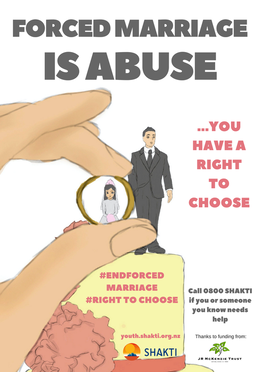
End Forced Marriage with Shakti Youth
Stopping and preventing forced marriage is a community responsibility. We want members of the community, civil society organisations, marriage celebrants, educational institutions, government agencies and religious organisations and leaders to pledge a commitment to ending forced and under-age marriage in communities living in Aotearoa. How can you help end forced marriage?
Advocacy Win! This month, a Bill has been passed in Parliament which means 16 and 17 year olds must get permission from a family court judge to get married after the judge has carried out an investigation. This means that the two young people getting married will be interviewed by the judge without the parents there. You can read articles about the Bill passed in Parliament here. http://youth.shakti.org.nz/ New Books in the Clearinghouse Collection
Items recently added to the library. Last updated on 22 June 2022. Click on the title links to access these items. Contact the Information Specialist for more help. Books are listed below under the following headings:
Visit the Library HERE GIVE NOTHING TO RACISM TOOLKIT & VIDEO
Visit the website and download the "give nothing"toolkit and share the video on social media. https://d30v9q1wfn46z7.cloudfront.net/assets/video/givenothing-about.mp4 |
Online Tools & ResourcesTechnology shield developed to help women report abuse without a trace in browser history
On the websites of many New Zealand companies women can now access information about the services offered by Women's Refuge via a web page which will leave no trace in the browser history. Women's Refuge's chief executive Ang Jury said abusers often exerted control over all of a woman's activities and would check on things like who they had rung, text messages and which websites they had visited. She said the Shielded system offered a discreet way for women to get advice about the services the Women's Refuge offers. "When people click on the little icon, it takes them to some basic information about how to keep safe, how to seek help, and gives a contact email form if they want to contact us by email," Dr Jury said. The page also provides information about how to keep your web history private on other sites if you suspect you are being monitored. The Shielded icon is a small image of a computer with half the screen shaded The link is available on the websites of The Warehouse, Trade Me, ASB and others. Read Full STUFF article HERE Tips for online Safety
Sharon Armstrong (Ngati Kahungunu) is a justice worker, author and public speaker. She has shared her experience of romance fraud in her book ‘Organised Deception’, launched in March 2018, to highlight the many issues that victims of fraud face. She advocates for victims/survivors and their families who have been exploited in some way by scammers and is working to get legislative change made in Aotearoa to protect victims of this type of fraud. By using her experience as an example for others, she hopes to show that anyone can overcome adversity. We just need time to rise above it and grow from the experience. http://www.communityresearch.org.nz/sharon-armstrong-staying-safe-and-well-in-isolation/ 0800 HEYBRO (439 276) is a new pilot for the Canterbury area, Launching June 5th 2018
This number is setup for men who feel they’re going to harm a loved one or whanau member. We’re here to support 24/7 to listen and to help. For more info and a video check out https://www.hewakatapu.org.nz/services/0800-hey-bro Follow and share on facebook 1 in 3 Be Free
OUR GIFT TO NEW ZEALAND WOMEN 1 in 3 Be Free is an app is designed to help women screen their relationships for abuse and to connect them to support services nearby. The 1 in 3 Be Free App is available for free download from the Google Play Store and Apple App Store. To find the App search “1in3befree” download it, use it, rate and review it! There is also an online version at www.1in3befree.org.nz “We recognise that it isn’t always easy to identify when behaviours in a relationship become concerning, controlling, or abusive, so we want to help educate women about different forms of abuse and their effects” In partnership with the fantastic Omnispex, the team at Inner City Women's Group have spent the last 2 years producing an App that helps women to screen for indicators of all forms of domestic violence from a current or ex-partner. Developed by the Inner City Women's Group. http://www.innercitywomensgroup.org.nz/ KNOW THE DANGER SIGNS RESOURCE
The "It's not OK" campaign has developed the "Know the Danger Signs" resource, including videos, to help friends, family and others to identify signs that someone is in danger of being killed by their partner.
The web page also has resources available for download or to order, like brochures and posters. 'Safe to Talk' sexual harm & violence helpline launched nationwide
A new helpline has been launched to support people affected by 'sexual harm' and sexual violence.
Safe to talk - He pai ki te kōrero launched nationwide on 16 April 2018. The helpline provides 24/7 access to free and confidential information and support by phone, text, email or online chat. People can get advice and support from trained specialists and be connected to support services in their community. The www.safetotalk.nz website also provides information and resources. People can contact the helpline to get information and support for themselves, for someone else, or with general inquiries. Support is available in relation to someone having experienced sexual violence, or having harmed someone or having thoughts of harming someone. READ MORE Contact the helpline by: Calling: 0800 044 334 Texting: 4334 Emailing: [email protected] Live webchat on www.safetotalk.nz Safe to Talk from Insight Creative on Vimeo. Police Survey for Victims of Sexual Assault
NZ Police published new content on their website to support victims of sexual assault including an online survey.
The survey is for adult victims of sexual assault to provide feedback about how their investigation was handled. The survey asks respondents brief questions on specific areas of the investigation, from how they were treated when they first spoke to Police, through to the ongoing investigation and the final result. Police are also seeking feedback on the support and communication provided. Feedback from the survey will be used to improve the service Police provide now and in the future. The new web content also includes information about safety, consent, how to get help, victim's rights and general information about sexual assault. Know the Danger Signs
It's Not OK launches new resources on lethality Signs that someone is in danger of being killed by their partner are often missed by friends, family and others until it is too late. Controlling behaviour Intimidation Threats to kill Strangulation and 'choking' Worsening violence – more severe, more frequent Intense jealousy or possessiveness Stalking READ MORE HERE: http://areyouok.org.nz/family-violence/the-danger-signs/ Launch of a ground-breaking clinical sexual violence network will provide much needed support for this sector
The website provides information on sexual assault medical services. MEDSAC was formerly Doctors for Sexual Abuse Care (DSAC). MEDSAC said that for clinicians, the network provides "quality assured 'best practice' guidelines, expert support and advice, and a forum where clinicians can share experiences and knowledge." The website also provides links to ACC and a series of videos created by NZ Police earlier in 2017, setting out the process of reporting a sexual assault to the Police. MEDSAC is funded by police, ACC and the Ministry of Health. For the public, the SAATS website provides contact details for 18 health clinics around the country that provide specialised sexual assault medical services. A systems approach for generational change
Working in collaboration with Synergia and ACC, Le Va is ensuring that Atu-Mai is a nationally coordinated systems change programme of work. We will also work alongside Pasifika community organisations and groups to provide resources that will complement their work and support them to prevent violence in our communities. Atu-Mai tools and resources take an educational and skills-based approach aiming for behavioural change across generations, strengthening Pasifika communities by developing confident and resilient Pasifika young people. The programme content combines evidence-based approaches with expert knowledge, community leadership, and co-design with Pasifika young people to ensure it is culturally relevant, family focused and community-led. https://www.leva.co.nz/our-work/violence-prevention Te Pūtahitanga o Te Waipounamu is proud to announce the launch of the Whānau Ora Directory
Often, one of the challenges facing whānau is that they do not know how to find a resource that fits their needs. The Whānau Ora Directory aims to easily connect whānau to the appropriate resources in their area. Information on Whānau Ora services across the motu has been collected and collated into one website, allowing whānau to quickly and easily find an organisation that suit their needs, whether it be information, advice and support on education, health, business or housing. Te Pūtahitanga o Te Waipounamu would like to thank the teams at Ariki Creative, Māui Studios and Manu Media for their dedication and support in developing this important resource. Te Putahitanga o Te Waipounamu would also like to thank all of those who contributed their information to the website. We see this as a work in progress; as the momentum continues to build so too will the website! We hope that it will continue to grow and be a resource for whānau now and in the future. Check it out by following the link below: http://whanauora.co.nz/ Mauri Ora! Training, Seminars & WorkshopsNew online training on links between different forms of violence.
The US-based Veto Violence from the Centers for Disease Control and Prevention (CDC) has launched a new online training tool, Connecting the Dots. The training looks at the links between multiple forms of violence and opportunities for prevention. The resource makes the case for better understanding and addressing the interconnections between forms of violence such as child abuse and neglect, bullying, youth violence, dating violence, intimate partner violence, sexual violence, elder abuse, and suicidal behaviour, as they are strongly interconnected. Research has shown:
Free online course on violence against women
International online learning provider FutureLearn is offering a free online course on violence against women, participants can start this week. The course, Understanding Violence Against Women: Myths and Realities takes two hours a week for six weeks. The course descriptions says "The United Nations considers violence against women to be a grave violation of human rights of epidemic proportions. Such violence has profoundly negative consequences for individuals, communities and entire societies. This is why violence against women is a priority issue for governments and societies around the world. On this course you will learn about the roots of violence against women, the principles of gender inequality at its centre and most importantly, how to challenge entrenched attitudes that impact women the world over." Key topics covered include:
FutureLearn is owned by The Open University and develops courses in partnership with universities and other institutions. The course is available for free without a certificate, or to receive a Certificate of Achievement you need to pay $54 and mark 90% of the steps on the course as complete. More Information and Sign-up HERE Diploma in Child Protection Studies.
We are trying to get people to commit to doing the Diploma in Child Protection Studies. If we get the numbers locally they will bring a Course to Blenheim. We already have a few who really want this valuable qualification but we need more. Please contact Lyn at the address below if you want to complete this. It will only be available in the Hamilton next year if we do not get enough people. A fuller outline is below We look forward to hearing from you Nga mihi Lyn Caughey Manager / Fieldworker SF Marlborough 68 Seymour Street Blenheim (03) 5775491 https://www.facebook.com/SupportingFamiliesMarlborough Six Blocks of 5 Days in-classroom tuition over 1 Year Complete 9 Assignments - self-guided tuition The Diploma in Child Protection Studies www.childmatters.org.nz/38/child-protection-training/diploma is an advanced level training in child protection and advocacy, designed to develop leaders and 'go-to' child protection resources within organisations and communities. Delivered solely by Child Matters, the Diploma in Child Protection Studies is a nationally recognised, NZQA accredited tertiary qualification, and the only specialist child advocacy qualification in New Zealand. Graduates of the Diploma add value to organisations and communities by;
|
Media, Books, TV & FilmNZFVC.org.nz - Recorded Webinars
On this NZFVC webpage you can find recorded webinars from organisations working to prevent family, whānau and sexual violence in Aotearoa New Zealand and around the world. Since the advent of the COVID-19 global pandemic, the number and scope of these webinars has increased. Links are provided to organisations which regularly record these webinars and make them available to anyone with the time and interest to watch and learn. This list includes international organisations and large, well-resourced organisations in Australia, Europe and North America. CELIA
Amanda Millar’s moving documentary celebrates the enduring legacy of Celia Lashlie, a passionate advocate for social interventions that equipped those long deprived of choice with the tools for responsible decision making. As part of the NZ International Film Festival a documentary about Celia Lashlie will run on 26 and 27 August in Nelson at the Suter Gallery. If you are interested in attending here is the link to the site where you can get more information and book tickets www.nziff.co.nz/2018/film/celia. New book, Engaging Men and Boys in Violence Prevention
Wed, 07 Nov 2018 - 16:10 Michael Flood Across the globe, violence prevention initiatives focused on men and boys are proliferating rapidly. The new book Engaging Men and Boys in Violence Prevention highlights effective and innovative strategies for the primary prevention of domestic violence, sexual violence, and other forms of harassment and abuse. It combines research on gender, masculinities, and violence with case studies from a wide variety of countries and settings. Through the cross-disciplinary examination of these varied efforts, this work will enable advocates, educators, and policy-makers to understand, assess, and implement programs and strategies which involve men and boys in initiatives to prevent violence against women. The book is available from: https://www.palgrave.com/us/book/9781137442109. Visit the SOURCE of this article for a discount flyer for purchase. and a brief summary of each chapter Raise our Men - Full Film BelowRecommended reading on family and whānau violence.
Prepared by the New Zealand Family Violence Clearinghouse,
University of Auckland, May 2017. Read online below or download as a PDF or Word document For more information, please contact the Information Specialist Downloads: Recommended reading on family and whānau violence (PDF, 637 KB) Recommended reading on family and whānau violence (Word DOCX, 705 KB) About this reading list: This list of reports, articles and resources is a selection by the New Zealand Family Violence Clearinghouse (NZFVC). Its purpose is to provide quick access to key research, reports, conceptual frameworks, tools and other resources that have been influential and useful in developing under-standings of family violence, whānau violence, violence against women and gendered violence over time. We use "family violence" as an umbrella term including intimate partner violence, child abuse and neglect, elder abuse and more. Items range from websites, tools and YouTube clips to reports and journal articles. Some of them are classic or seminal pieces and some are newer; they are ones we tend to come back to again and again. They are ones we frequently send out when people ask us for information on these topics. It is not intended to be a comprehensive list of the large amount of invaluable research that has been done and resources that have been created, but, we hope, a useful reference. Where an item is in the NZFVC library, the link goes to the library record – click on the link to bring up a brief description. Some ways you could use this list include:
To see the entire article please click HERE Laws & Policy UpdatesStrangulation criminalised under new law
The new strangulation or suffocation offence came into effect on Monday with a maximum penalty of seven years' imprisonment as part of the Family Violence (Amendments) Act, replacing the Domestic Violence Act. The act rolls out in two phases, with the second to begin in July next year. Three new family violence offences were introduced: strangulation, coercion to marry, and assault on a person in a family relationship. Justice Minister Andrew Little said the new law marked a "significant update" to family violence legislation and established the importance of and respect for victims. "These new offences criminalise behaviours and practices that can now be prosecuted specifically under family violence," he said. The Bail Act was also amended, giving police and courts the power to impose bail conditions on defendants charged with family violence offences, to protect the victim and family. Under the Act, video recordings made by police within two weeks can now be heard in court. "This change will help reduce trauma and improve the court experience for victims of family violence and will be implemented throughout the country over time," Under-Secretary for Justice Jan Logie said. "These changes are designed to bring a much stronger focus onto the safety of victims, the roles and responsibilities of the workforce and better protect people vulnerable to specific offences, such as forced marriage." Full Stuff Article HERE Legislation on workplace protections for domestic violence victims passes.
The Domestic Violence—Victims' Protection Bill has passed its third reading and received Royal Assent. It will come into effect on 1 April 2019. Jan Logie, now Under-Secretary for Justice (Domestic and Sexual Violence Issues), said: "I’m beyond delighted to see this law finally become a reality. This is a win for victims, a win for employers, and a win for society. This law is a world first and it will make a significant difference for people trying to escape domestic violence. ... Everyone should be able to live free from violence. But too many people find it impossible to keep their jobs while trying to move house, attend court dates, or settle the kids at a new school. And too many employers are unaware of the extent to which domestic violence impacts their employees and workplaces, and are unsure of how to respond. This bill gives them a framework to do the right thing for everyone – victims and themselves." Domestic violence charity Shine said the bill would benefit all employers, including small businesses, through increased productivity and better employee retention. Shine offers employer support through their DVFREE programme. DVFREE website Link HERE. Women's Refuge said it was "delighted" with the outcome, they offer support for employers through their Responsive Workplaces programme. Related news The Human Rights Commission and several New Zealand employers recently launched the website www.businessworkingtoendfamilyviolence.co.nz. The website provides information to support workplaces develop and implement a family violence workplace policy. Sharing personal information of families and vulnerable children
| ||||||












